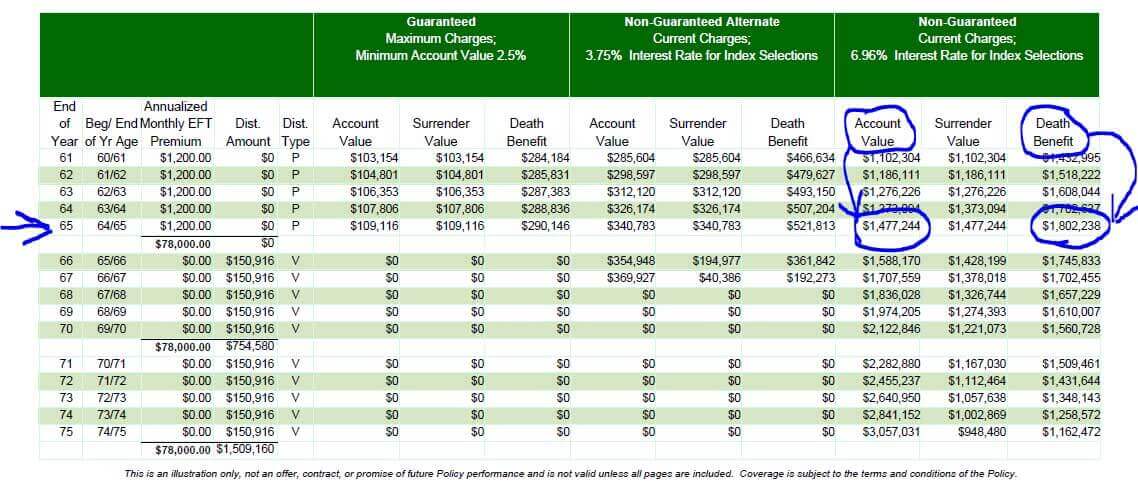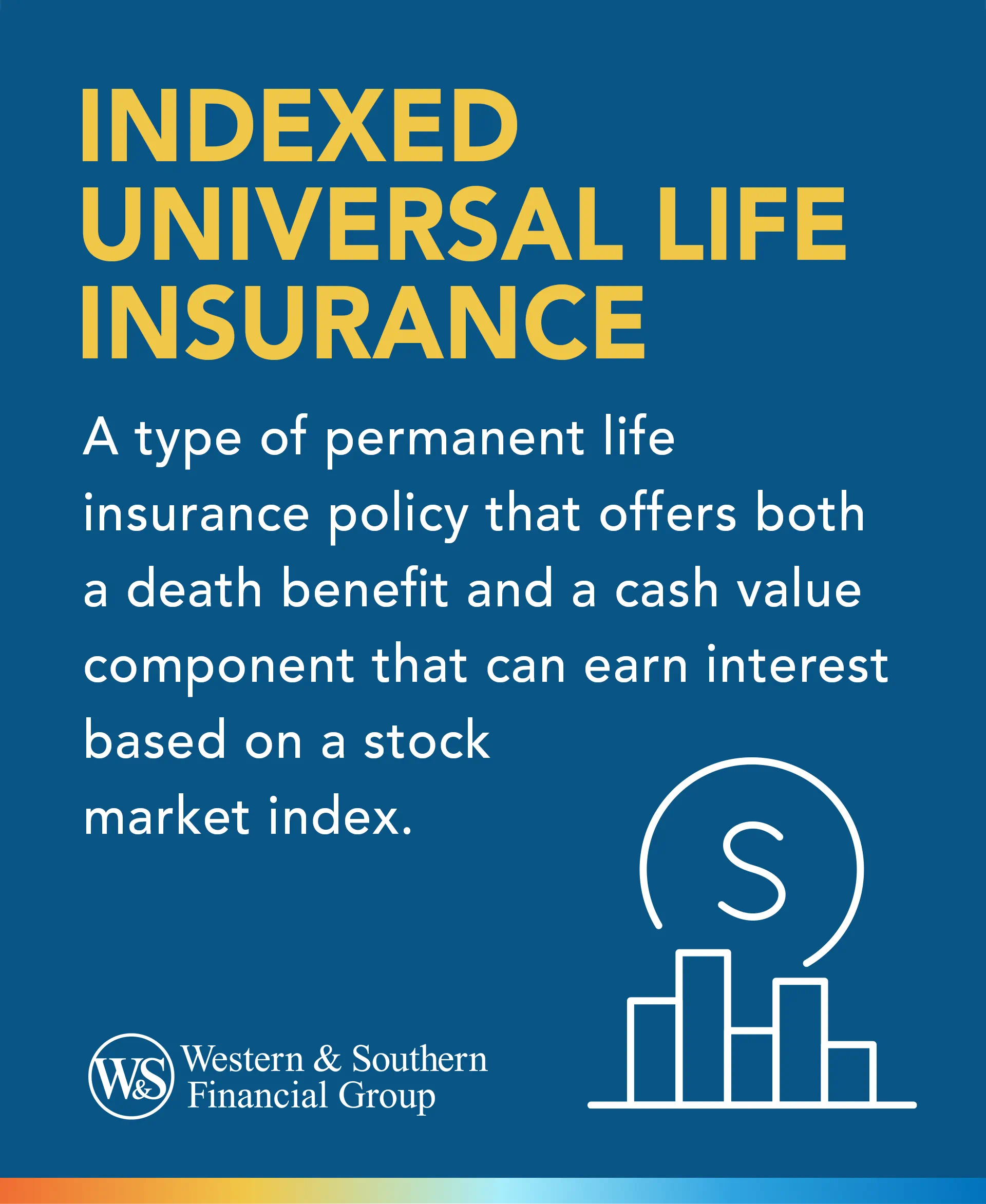All Categories
Featured
Table of Contents
Do they contrast the IUL to something like the Lead Total Amount Supply Market Fund Admiral Shares with no tons, an expenditure proportion (ER) of 5 basis factors, a turnover proportion of 4.3%, and an exceptional tax-efficient record of distributions? No, they contrast it to some horrible proactively taken care of fund with an 8% tons, a 2% ER, an 80% turn over proportion, and an awful record of short-term resources gain distributions.
Shared funds often make annual taxed circulations to fund proprietors, even when the value of their fund has gone down in value. Common funds not just require revenue coverage (and the resulting annual taxes) when the common fund is increasing in value, however can likewise enforce earnings taxes in a year when the fund has actually dropped in value.
That's not just how shared funds function. You can tax-manage the fund, collecting losses and gains in order to lessen taxable distributions to the capitalists, yet that isn't somehow going to transform the reported return of the fund. Just Bernie Madoff kinds can do that. IULs stay clear of myriad tax traps. The ownership of common funds may need the mutual fund owner to pay approximated tax obligations.

IULs are simple to position to make sure that, at the owner's fatality, the beneficiary is not subject to either revenue or inheritance tax. The exact same tax decrease strategies do not function nearly too with mutual funds. There are various, typically pricey, tax catches linked with the timed trading of mutual fund shares, traps that do not put on indexed life Insurance policy.
Possibilities aren't extremely high that you're mosting likely to undergo the AMT as a result of your shared fund circulations if you aren't without them. The remainder of this one is half-truths at finest. While it is true that there is no income tax obligation due to your successors when they inherit the profits of your IUL policy, it is likewise real that there is no revenue tax obligation due to your heirs when they acquire a mutual fund in a taxed account from you.
Universal Life Insurance Rates
The government estate tax obligation exception limit mores than $10 Million for a pair, and growing every year with inflation. It's a non-issue for the vast majority of medical professionals, much less the remainder of America. There are much better ways to prevent estate tax obligation issues than acquiring investments with reduced returns. Shared funds might create revenue tax of Social Security advantages.

The development within the IUL is tax-deferred and might be taken as tax free income by means of car loans. The plan proprietor (vs. the common fund supervisor) is in control of his/her reportable revenue, therefore enabling them to minimize or perhaps get rid of the taxation of their Social Security benefits. This is fantastic.
Here's an additional very little concern. It's real if you acquire a shared fund for say $10 per share just prior to the distribution day, and it distributes a $0.50 circulation, you are after that mosting likely to owe taxes (possibly 7-10 cents per share) in spite of the reality that you have not yet had any gains.
In the end, it's really about the after-tax return, not just how much you pay in taxes. You are going to pay even more in taxes by utilizing a taxable account than if you buy life insurance policy. But you're likewise most likely mosting likely to have even more money after paying those taxes. The record-keeping demands for having common funds are significantly more intricate.
With an IUL, one's records are maintained by the insurance provider, copies of yearly declarations are mailed to the proprietor, and circulations (if any) are completed and reported at year end. This one is likewise kind of silly. Certainly you should maintain your tax documents in case of an audit.
Accumulation Value Life Insurance
Hardly a reason to buy life insurance coverage. Mutual funds are frequently component of a decedent's probated estate.
In enhancement, they are subject to the hold-ups and costs of probate. The proceeds of the IUL plan, on the other hand, is constantly a non-probate circulation that passes outside of probate straight to one's named recipients, and is consequently not subject to one's posthumous lenders, undesirable public disclosure, or similar hold-ups and expenses.
Medicaid disqualification and lifetime revenue. An IUL can offer their owners with a stream of income for their entire lifetime, no matter of how long they live.

This is beneficial when organizing one's affairs, and converting assets to revenue prior to a nursing home arrest. Mutual funds can not be converted in a comparable manner, and are practically constantly thought about countable Medicaid possessions. This is another foolish one supporting that inadequate individuals (you recognize, the ones who need Medicaid, a government program for the inadequate, to spend for their retirement home) must utilize IUL as opposed to shared funds.
Best Universal Life Insurance Companies
And life insurance policy looks terrible when contrasted relatively versus a pension. Second, people who have money to get IUL over and beyond their retirement accounts are going to need to be terrible at taking care of cash in order to ever get Medicaid to spend for their retirement home prices.
Chronic and incurable illness biker. All plans will certainly allow an owner's very easy access to cash from their plan, usually waiving any abandonment charges when such people endure a significant illness, require at-home treatment, or end up being confined to an assisted living home. Common funds do not give a similar waiver when contingent deferred sales costs still put on a common fund account whose owner requires to sell some shares to money the costs of such a remain.
Vul Vs Iul
Yet you reach pay more for that advantage (biker) with an insurance plan. What a large amount! Indexed global life insurance policy gives survivor benefit to the beneficiaries of the IUL proprietors, and neither the proprietor nor the beneficiary can ever shed cash as a result of a down market. Common funds give no such warranties or survivor benefit of any kind of kind.
I absolutely don't require one after I get to monetary self-reliance. Do I desire one? On average, a purchaser of life insurance pays for the real price of the life insurance advantage, plus the prices of the plan, plus the earnings of the insurance policy firm.
Iul Vs Roth Ira
I'm not totally sure why Mr. Morais threw in the whole "you can not shed cash" once more below as it was covered fairly well in # 1. He just intended to duplicate the most effective marketing factor for these points I expect. Again, you don't shed nominal dollars, yet you can lose actual dollars, in addition to face significant opportunity price because of low returns.

An indexed universal life insurance policy owner might exchange their policy for a totally various plan without activating earnings taxes. A mutual fund proprietor can not move funds from one mutual fund firm to an additional without offering his shares at the previous (thus triggering a taxed occasion), and buying new shares at the last, usually based on sales charges at both.
While it holds true that you can exchange one insurance plan for one more, the factor that individuals do this is that the very first one is such a terrible policy that even after buying a new one and undergoing the very early, negative return years, you'll still come out ahead. If they were offered the appropriate policy the first time, they should not have any desire to ever before exchange it and undergo the early, negative return years again.
Latest Posts
Index Universal Life Insurance Reddit
Universal Term Life
Adjustable Life Insurance Vs Universal Life Insurance